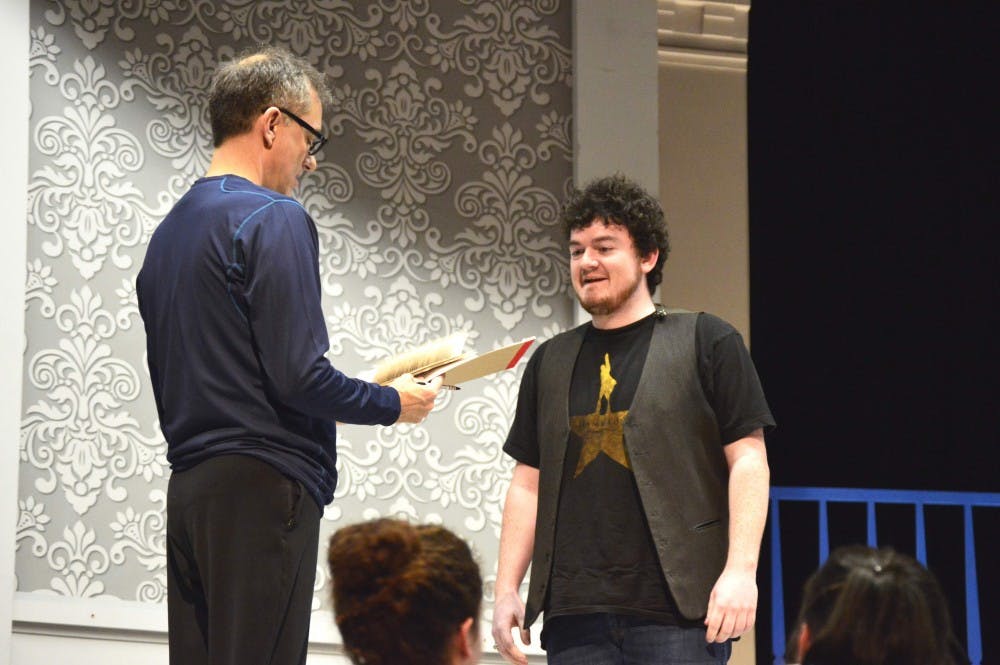"Don't think," Lewis Magruder said to the line of a dozen cast members sitting at the edge of the stage, with their backs to the rows of seats that would be filled with audience members next week.
One by one, the cast members stood up, stepped onto the set and recited a set of their character's lines that Magruder had chosen for them.
They were not only allowed, but encouraged to act as excessively as possible.
"Go crazy, don't make sense," said Magruder, associate professor of theatre in Miami's Department of Theatre and the director of "Tartuffe." He threw his papers across the set as an example of the spontaneity that they could play with.
The actors shouted their lines and jumped around in circles, their stomps echoing through the room. Some stood on top of the black blocks scattered across the set. One girl ripped the tablecloth off a table on the set and waved it around her.
This isn't how they've been rehearsing their lines, nor how Magruder wants them to perform in the real show. For this exercise, he simply wanted the actors to act on their impulses. After their crazy recitations, Magruder had them say their lines in character.
"How do you feel?" Magruder asked each cast member after they completed the exercise.
"Much more free," one girl said.
This was just one of the less conventional exercises that the cast has done to prepare for the production of "Tartuffe," a comedy originally written by Moliere in the 1600s, then translated from French to English by Richard Wilbur. The play follows Tartuffe, a man whom everyone -- barring Orgon, one of the main characters -- knows to be a hypocrite and a crook.
Orgon wants his daughter, Mariane, to marry Tartuffe, so the rest of the family decides theey must expose Tartuffe and show Orgon that he's not the charming character he thinks he is.
The play includes everything from physical comedy to dramatic acting to a script written in rhyming verse.
"The way people move and the way people say their lines, it's not supposed to be something that's realistic," said junior Holly West, assistant lighting designer. "I think the audience can just expect to be laughing a lot. You can also expect lots of rhyming. I felt kinda like I was listening to Dr. Suess."
Miami's production of "Tartuffe" will be showing at 7:30 p.m. from May 2-5 and at 2 p.m. on May 6 at the Gates Stage in the Center for Performing Arts. Tickets can be purchased online or at the Miami Box Office located in the Campus Avenue Building.
fentermc@miamioh.edu

